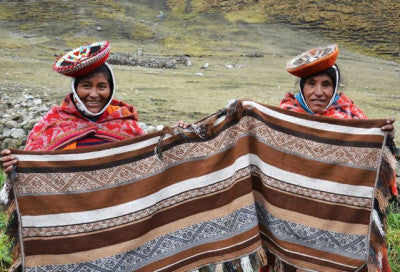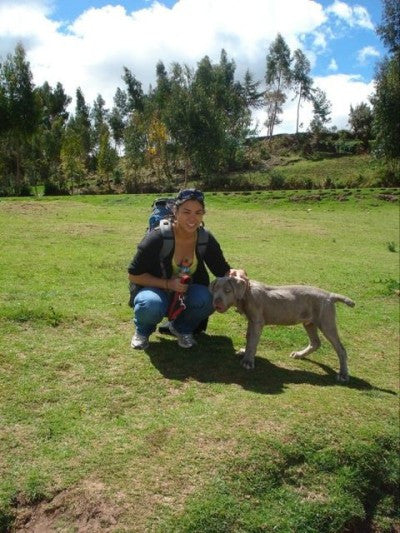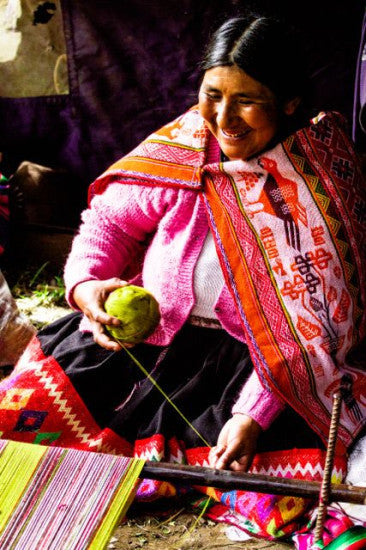As I mentioned in an earlier post, one of the reasons I was drawn to Threads of Peru is its business-oriented method of alleviating poverty in the Andes. As such, Threads of Peru is as much a social enterprise (i.e. a business with a socially minded mission) as it is a non-profit.
Non-profits, like businesses, rely on revenue to grow. Unlike many non-profits, which depend on donations or volunteer fees, Threads of Peru seeks to sustain itself by sales profits alone. A non-profit relying on profits is counter-intuitive yet impactful, and it is the method in which Threads of Peru has chosen to see its mission to fruition.

Project Coordinator, Dana, working with Master Weaver, Daniel Sonqo, and the women of Chaullacocha during an "entrega" (order pickup) in October 2013.
There is, however, a significant difference in the way society views non-profits and the way it views for-profit businesses. In a TED talk that inspired much of this post, Dan Pallotta explores the difficulties that non-profits face in the eyes of society. One of his main points is that non-profits are held to double standards with for-profit businesses in areas such as marketing/advertising, risk-taking, and return on investment. These double standards, he argues, hinder the growth of non-profits and ultimately deter the ability to achieve their social missions.

Baby Roxayra, daughter of Juana Quispe from Rumira Sondormayo, peaks out curiously from her mother's manta (carrying shawl).
Threads of Peru is in a tricky position: pressed to compete with for-profit businesses for customers in order to be sustainable, yet simultaneously distressed by societal expectations of what a non-profit “should” be doing with its revenues and opposed to taking similar measures that businesses would take to boost revenues (such as pressuring workers for shorter lead times or slashing production costs) because they do not align with our mission.

Weavers of the Rumira Sondormayo weaving association enjoy time together in the sunshine setting up their warps.
Navigating this conundrum is no easy feat, considering already significant challenges to doing business in the high Andes. Firstly, placing orders with the weavers entails traveling 3+ hours one way to their communities! On arrival, a translator is required to translate the orders and other important topics from Spanish to the weavers’ native Quechua language.
Both of these time constraints, however, are minimal compared to the time and effort it takes for weavers to produce their pieces. From shearing alpaca wool to naturally dyeing the fiber to weaving the textile itself, the entire process can take a number of weeks. It is because of these challenges that our prices are on par with those of luxury brands – not because of a high markup.

Juana Paola, member of the Huaran weaving association, works in the shade on a new design of change purse.
Thus, our prices are a reflection of our dual identity as a non-profit and a business. Threads of Peru is grateful to its customers who are willing to pay fair trade prices in order for us to fairly remunerate weavers and to allocate funds to acquire more customers, with the ultimate goal of continuing to realize our mission: sustainability through sales!






